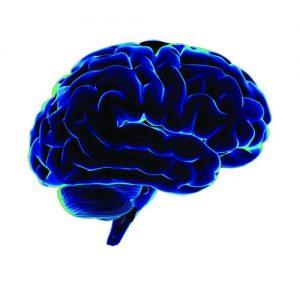×


We have detected your country as:
Please click here to go to the USA website or select another country from the dropdown list.

Photo: istock.com
Whether at school, in car accidents, on the sports field or the battlefield, mild traumatic brain injury (mTBI) is a common part of our lives. It is especially frequent among children, athletes and the elderly. Now, scientists at the Hebrew University of Jerusalem have shown that a single dose of a new molecule they developed can effectively protect the brain from inflammation, cell death and cognitive impairments that often follow a mild traumatic brain injury.
Because it lacks visible external signs or objective structural brain damage, mTBI is an under-diagnosed injury. Yet it is often accompanied by long-lasting cognitive, behavioral and emotional difficulties associated with biochemical and cellular changes. Currently there is no effective treatment for patients with mTBI.
“It is widely known that external or internal injury strongly activates the inflammatory response and leads to cell death (apoptosis) through the MAPK pathways, which are involved in the cellular responses that lead to inflammation in brain cells,” explains Prof. Daphne Atlas, from the Hebrew University of Jerusalem. “Therefore, for reversing the effects of mTBI, it is essential to calm the inflammatory pathways.”
At her laboratory in Jerusalem, Prof. Atlas has developed new molecules derived from the active site of Trx1, called thioredoxin-mimetic peptides (TXM-peptides)…[which] have been shown to protect cells from early death via the activation of inflammatory pathways. Comprising three or four amino acids, these peptides have dual activity: they mimic the antioxidant activity of Trx1, and simultaneously inhibit the activity of enzymes called MAPK within the inflammatory pathway, preventing inflammation and cell death.

Prof. Alas
(Photo: Hebrew University)
“This research demonstrates the potential for TXM-peptides to significantly reduce cognitive impairment after mild traumatic brain injury,” said Prof. Atlas. “Further studies are required to establish and examine the potential of a single dose of TXM-peptide in preventing damage if administered even one hour after brain trauma in human scenarios.
“Another advantage to using peptides is in significantly reducing the risk of causing toxic effects, because they consist of amino acids which are the natural building blocks comprising cell proteins, in contrast to the use of drugs that are not natural. So TXM
CB3 and TXM-CB13 [TXM-peptides] are promising treatment to candidates to prevent secondary damage that affect brain function,” said Prof. Atlas.
Source: Excerpt of article by Hebrew University, Jerusalem
All logos and trademarks in this site are property of their respective owner. All other materials are property of Bridges for Peace. Copyright © 2024.
Website Site Design by J-Town Internet Services Ltd. - Based in Jerusalem and Serving the World.